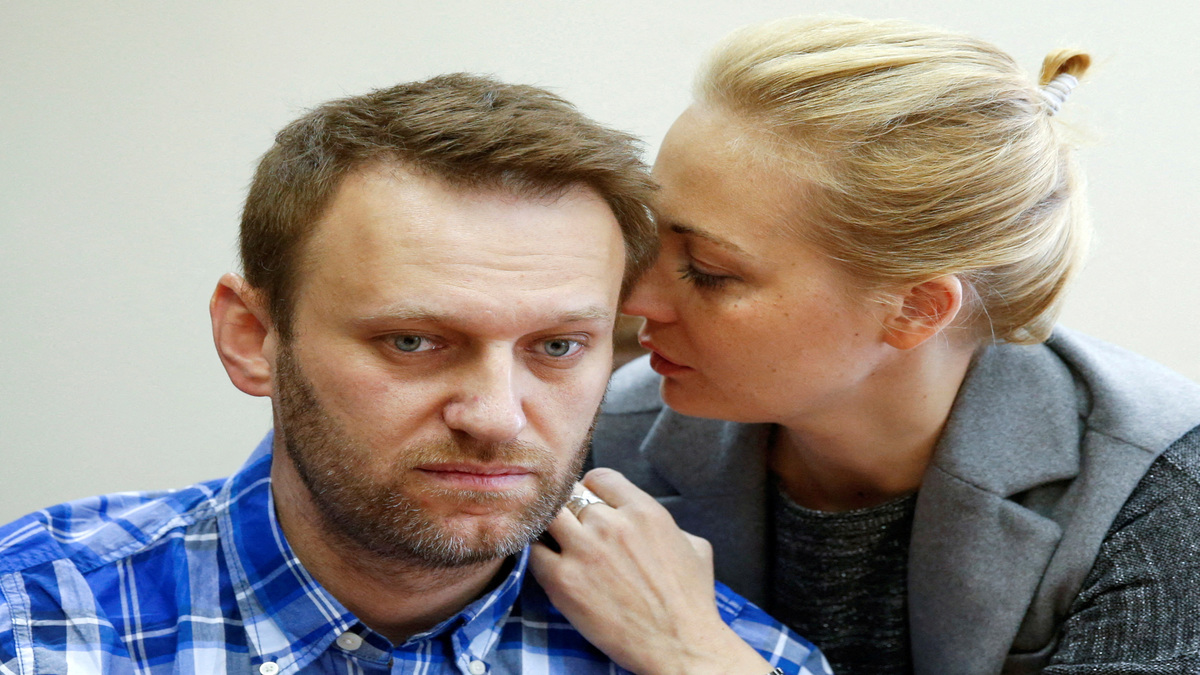Alexei Navalny’s widow, Yulia Navalnaya, has accused Russian president Vladimir Putin of killing her husband. In a video posted on social media on Monday (19 February), she alleged Navalny was poisoned “by another of Putin’s Novichoks” and Russian authorities were “hiding” his body to ensure the traces of the nerve agent disappeared.
Her statements come after the Russian opposition leader’s mother was not allowed access to a morgue where his body is believed to be kept after his death last week in an Arctic penal colony. According to Russian authorities, the cause of Navalny’s death is still not known.
This is not the first time a Putin critic has met a tragic end. There have been several poisonings over the years targeting the Kremlin political critics and defectors.
Let’s take a closer look.
Brief history of Russia’s poisoning plots
Russia has allegedly been using chemicals as a tool to harm its enemies for at least a century. According to the Australian Broadcasting Corporation (ABC) News, Vladimir Lenin ordered setting up of a secret service poisons factory, known as Laboratory No. 12, on the outskirts of Moscow in 1921.
Under Lenin’s successor Joseph Stalin, the factory was renamed Kamera, the Russian word for Chamber.
By the 1940s, scientists began testing the deadly poisons on prisoners from the gulags. During the Cold War, the Soviet Union deployed poisons to eliminate enemies and dissenting figures, reported Foreign Policy. Experts believe this tactic may have continued to this day.
Impact Shorts
More ShortsRussia’s many, many poisonings
From Ricin to Novichok, different chemicals have allegedly been used by Russian security services to target prominent political dissidents.
Going back to the Cold War era, Nikolay Khokhlov, a Soviet assassin turned defector, was poisoned in 1957 by thallium, a severely toxic, almost tasteless poison. While he survived, the poison left him “totally bald” and “so disfigured by scars and spots that those who had known me did not at first recognise me”, Rolling Stone reported citing Khokhlov’s memoir.
In 1978, Georgi Markov, a Bulgarian dissident, died after being pricked by the poisoned tip of an umbrella on Waterloo Bridge in London. The tip injected a tiny pellet of Ricin into his bloodstream that killed him four days after the attack, which was believed to be backed by the KBG, as per Rolling Stone.
Ukrainian pro-European leader Viktor Yushchenko, who was running against Russian-backed Viktor Yanukovych in Ukraine’s presidential election, was poisoned with Dioxin in 2004. He survived the assassination attempt but was left permanently disfigured, with severe facial scarring and blotches on his face and body.
In 2004, Russian journalist Anna Politkovskaya, a fierce Kremlin critic, accused the Russian intelligence agents of poisoning her tea when she was travelling on a plane to cover the Russian conflict with separatists in Chechnya, reported Rolling Stone. She survived the attack. However, Politkovskaya remained a target and was shot dead two years later in her apartment building in Moscow.
Alexander Litvinenko, a former FSB (the successor to the KGB) member turned Putin opponent, died of polonium-210 poisoning in London at a hotel bar in 2006. Two Russian agents had laced his green tea with the highly radioactive element, a British inquiry found. It also said that Putin “probably approved” the ex-spy’s killing. On his deathbed, Litvinenko blamed Putin and the Kremlin for the attack.
In 2018, Sergei Skripal, a former Russian double agent, and his daughter Yulia were poisoned with the Soviet-era nerve agent Novichok in Salisbury, United Kingdom. Both of them survived the assassination attempt.
The then British prime minister Theresa May condemned the attack, blaming Russia for the attack. Moscow denied any involvement, accusing Britain of the poisoning, as per DW.
Attempts were made on Alexei Navalny ’s life in 2020 as well. The anti-corruption activist fell ill on a flight from Siberia to Moscow, leading to an emergency landing. He recovered at a German hospital.
Many independent laboratories found the presence of Novichok in his system, reported DW. Navalny had blamed Putin for the attack. His assailants later were deceived by the Russian Opposition leader into admitting to putting poison in his underwear in Tomsk, as per The Guardian.
Russian democracy campaigner Vladimir Kara-Murza is believed to have survived two suspected poisonings. He is currently imprisoned in Siberia after being convicted of treason last year.
In March 2022, Russian oligarch Roman Abramovich displayed symptoms of suspected poisoning during the peace talks on the Ukraine-Belarus border. Besides Abramovich, several others present in the meeting suffered symptoms such as “red eyes, constant and painful tearing, and peeling skin on their faces and hands”, according to the Wall Street Journal (WSJ).
The Russian billionaire believed pro-war Kremlin hardliners were behind the attack.
Last year, jailed Georgia’s former president Mikheil Saakashvili claimed “Russian agents”, who infiltrated Georgia’s intelligence service, had tried to poison him in prison. Speaking to Politico in March 2023, he said he “almost died” from the attack and has been in poor health since then.
Why are poisons used?
Experts say poisoning might be a preferred Russian tool due to several reasons.
Mark Galeotti, a senior associate fellow at the Royal United Services Institute, told Politico, “One of poison’s great virtues for the politically minded murderer is their capacity to combine easy deniability and vicious theatricality. Even while the murderer denies any role, perhaps with a sly wink, the victim dies a horrific and often lengthy death. A message in a poison bottle”.
According to Boris Volodarsky, a former captain in Russia’s special forces, sometimes the poisoning is meant to create a “distraction”. “This old KGB trick is officially known as ‘distraction’ — diverting it from something more important,” he was quoted as saying by ABC News.
After Navalny’s poisoning in 2020, a NATO intelligence official told Insider, “Despite a surprisingly poor track record thus far, Novichok is an effective, deadly poison that has the added benefit of everyone knowing Vladimir Putin wants you dead”.
With inputs from agencies
)